Together with the Speakers and Thinkers of the past FastForwardForums in Saint-Tropez and Venice, these panels are tackling the effects of COVID-19 on health, economy and society.
Panel #1: Health
-
Prof. Dr. Markus Hengstschläger (AT)
-
Prof. Dr. Shafi Ahmed (UK)
-
Pete Trainor (UK)
-
Dr. Doris Malischnig (AT)
-
Dr. Franz Gruber (AT)
-
Robin Farmanfarmaian (US)
Panel #2: Economy
-
Heimo Hammer (AT)
-
Dhiraj Mukherjee (UK)
-
Sunnie J. Groeneveld (CH)
-
Matteo Atti (UK)
-
Arno Wohlfahrter (AT)
-
Igor Beuker (NL)
- Alicia García López (SP)
Panel #3: Society
- Lucie Greene (UK)
- Carla Johnson (US)
- Cindy Gallop (US)
- Heather Mills (UK)
- Fred Koblinger (AT)
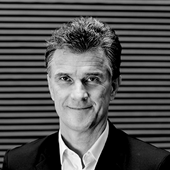
Heimo Hammer (AT)

Lucie Greene (UK)
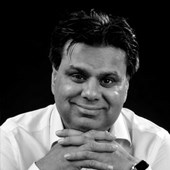
Prof. Dr. Shafi Ahmed (UK)
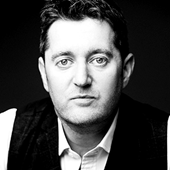
Pete Trainor (UK)

Dhiraj Mukherjee (UK)
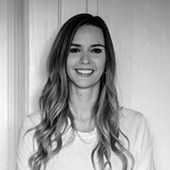
Sunnie J. Groeneveld (CH)

Carla Johnson (US)

Cindy Gallop (US)

Robin Farmanfarmaian (US)
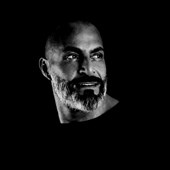
Igor Beuker (NL)

Heather Mills (UK)
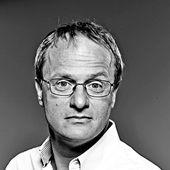
Prof. Dr. Markus Hengstschläger (AT)

Alicia García López (SP)

Dr. Doris Malischnig (AT)

Matteo Atti (UK)
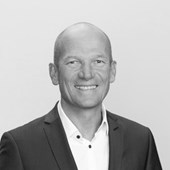
Arno Wohlfahrter (AT)
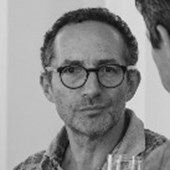
Heinz Popovic (AT)

Dr. Franz Gruber (AT)
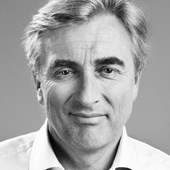
Alfred Koblinger (AT)
Heimo Hammer (AT)
Heimo Hammer, born in 1963 in Villach and CEO of kraftwerk. His focus is the strategic and creative combination of traditional advertising with new media. That means planning and designing corporate communications and campaigns with a sustained impact across a variety of media. “Modern advertising is an orchestra of old and new instruments performing in unison.”
kraftwerk has put theory into practice since 1990. There are no longer borders between online and off-line. At kraftwerk communication campaigns always focus on people. Where do we get information, and how do we consume it? What innovations help us beat the competition and get to the customer first? This is where we focus our efforts.
Those who grasp the initiative go further - Over the past years Heimo Hammer and kraftwerk have been increasingly on the search for innovations. By working together with national and international partners they have discovered completely new forms of cooperation and utilised synergies.
Lucie Greene (UK)
THE DEATH OF BEAN BAGS: HOW BIG TECH’S STATUS AS THE ULTIMATE EMPLOYER BRAND TURNED BAD
Bean Bags, free food, lavish headquarters conceptualised by super star-architects, and the promise of a career that was lucrative, and where you held potential to solve world problems… For a long time working in Big Tech was the dream for most young people. But is its status as the ultimate employer brand starting to change? The talk
will examine the key aspirational aspects of Big Tech as an employer and how this has changed in recent years. Examples include the slew of litigation from disgruntled employees; the recent and ongoing societal scandals that affect us all; how massive expansion in new capitals is distorting communities, all compounded by changing attitudes to work and life. The idea of plucky start-ups being agile, creative and entrepreneurial is changing as these organisations get so big, bloated and bureaucratic that it’s actually harder than ever to have impact. They don’t invite critical dialogue, meaningful self-reflection or debate. Once the future, introducing iconic new ways of working
and being, has the ideological promise of Big Tech soured?
Prof. Dr. Shafi Ahmed (UK)
THE FUTURE OF HEALTHCARE
Global Healthcare is in need of disruption. With rising costs and an increase in chronic diseases we need to reimagine and redesign the way healthcare is delivered to make it accessible, affordable and equitable. Technology can help: today’s medical practitioners live in exciting times, with the introduction of exponential technologies to allow the democratisation of access to good and sustainable care. Health 4.0 is a fusion of techs that will enable the Internet of Medical Things. Data-driven care will involve the use of genomics, artificial intelligence, extended reality and more. Human interaction will increasingly become virtual and augmented in the future: fuelled by AI, a human’s first point of healthcare contact will change to telemedicine, chatbots, holograms – even, perhaps, holoportation. Meanwhile, micro and biological sensors using nanobots will allow real time monitoring and disease prevention whilst robots will allow remote and precise surgery utilising superfast connectivity. This development of the complex brain computer interface will supercharge the understanding of brain and behaviour.
Pete Trainor (UK)
Pete Trainor is an author, behavioural designer, technologist, accidental polymath, mental health campaigner, co-founder of US Ai in London and now CEO of Vala Health. He talks all over the world on creative & social technologies, data, artificial intelligence and the physiological & psychological effects on their audiences. Over the last three years, Pete has helped to pioneer an entirely new approach to Ai focused services, one that looks at ‘self-evolving systems’ and ‘minimum viable personality’ to help solve societal and human issues.
His recently published, bestselling, book “Hippo - Human Focused Digital” takes a philosophical look at technology and design, challenging us to look inwardly at the self when designing future technologies. Pete regularly appears in UK national and international press as an analyst on emergent technologies, and tech markets. Pete chairs the Ai Think Tank for The British Interactive Media Association. He was recently voted, by the industry, as one of the 5 most influential people in the British digital industry in Econsultancys 2017 industry report. He has a very simple philosophy: Don't do things better, do better things.
Dhiraj Mukherjee (UK)
Dhiraj Mukherjee is an experienced digital business executive and entrepreneur, with a proven track record in both corporate and start-up environments.
Recognised by the Financial Times as one of Europe’s Top 50 technology entrepreneurs in 2015, Dhiraj was previously Head of Banking Innovation at Virgin Money, where he was responsible for developing and implementing disruptive new digital banking products, propositions and partnerships. Recent projects include leading the team responsible for creating Virgin Money Digital Bank’s next-generation product, aimed at serving 2.2 million students in the UK.
Over the course of his career, Dhiraj has held directorial roles across a range of sectors including media & entertainment, consulting and the charity sector. In 2000, Dhiraj co-founded Shazam Entertainment, the world’s first mobile phone-based music recognition service. He was a Director of Shazam from 2000-2003, and raised £600,000 in seed funding and over £10m in venture capital investment over three rounds. Dhiraj has been a Board observer for Shazam since 2004, and is actively engaged in shaping overall product and corporate strategy. Shazam was acquired by Apple in 2017 for a reported $400 million.
Previously, Dhiraj has worked in strategy and innovation roles within disruptive and high growth companies, including Bauer Media, Infosys Limited, ?What If!, Reuters and Save the Children. Using his extensive experience, Dhiraj is also an active angel investor, mentor to emerging technology start ups, and advisor to venture capital firms. Dhiraj was elected as a member of The Digital Banking Club’s “Power 50” in 2016, and Smith & Williamson’s “Power 100” in 2017 for supporting entrepreneurs. He speaks regularly at major conferences on entrepreneurship, FinTech and emerging technologies.
Dhiraj has a degree in Mathematical Economics from Dartmouth College, USA and an MBA from Stanford University’s Graduate School of Business.
Sunnie J. Groeneveld (CH)
DIGITAL LEADERSHIP - RETHINKING THE LINK BETWEEN LEADERSHIP, ORGANISATIONAL CULTURE AND TECHNOLOGY
Technology pervades organisations across all industries yet the organisational structure has - so far - transformed very little as a result. Organisational cultures, leadership and the employees’ experience remain comparatively unchanged. With technological advancements, however, come new responsibilities, especially as the relationship between humans and machines is evolving faster than ever before. The session explores how, to manage these effects, organisations need a new type of leader: the digital leader. Leaders who are equally well-versed in leading technological change as they are in leading organisational change.
Carla Johnson (US)
HOW TO BUILD YOUR INNOVATION DREAM TEAM (FROM SCRATCH)
We’re looking at innovation all wrong. Executives think innovation requires a complex web of hurdles and loopholes that only people with an ivy-league education or spontaneous creative genius can deliver. They believe focusing on the ever-newer product or feature leads to the golden egg that will keep the competition at bay and customers at the ready. The problem is we’re focusing so much on the struggles of the process and outcomes that we miss the talent quotient. In this session Carla Johnson will teach us how to build an innovation dream team from scratch. You’ll learn the six archetypes every team needs to consistently deliver great, regular and reliable ideas. You’ll walk away ready to create an organisational culture that encourages experimentation and cultivates big ideas.
Cindy Gallop (US)
WHAT DOES YOUR BRAND STAND FOR?
Today, the old world order model of corporate social responsibility no longer cuts it. In a world where everything anyone does is on the internet, and indignation and outrage can mass in ways that damage both brands and people forever it’s time to think again. The new world order model is extremely simple. Brands need to look into themselves and identify what their values are and what they stand for, in the same way that people need to - values not derived from an empty corporate mission statement full of jargon, but from the very foundation of the company. It’s time then to build on and project those values to operate the business model of the future: shared values + shared action = shared profit, both financial and social. It requires a coming together with audiences on the basis of shared values and collaborating to walk the talk together. Cindy explores how no brand can do this without operating through a diverse lens, reflecting the world as it really is in everything it does – from its leadership, through its ranks and in its communications. Social responsibility, for individuals as well as brands, flows out of these values defining what you stand for, what you stand up for and what you know you should and shouldn’t do. Today, it’s the ability to operate that standard that makes social responsibility a key competitive edge in the marketplace, and a key driver of future growth and profitability.
Robin Farmanfarmaian (US)
Robin Farmanfarmaian is a professional speaker, entrepreneur and angel investor working on companies in cutting edge tech poised to impact 100M people or more. Currently Farmanfarmaian is VP of Actavalon, curing cancer; and Strategic Relations Advisor to MindMaze, VR for stroke and brain injury rehabilitation.
Recent investments include Invicta Medical, a medical technology company for sleep apnea, & Dance Biopharm, inhaled insulin with a smart, connected device. A life long philanthropist and mentor, she is the Co-Founder and on the Board of Directors (formally Executive Director) for the Organ Preservation Alliance, catalyzing breakthroughs in organ banking for transplants and tissue engineering.
Robin is on the advisory board of many startups and conferences, and mentors entrepreneurs. Previous work includes being one of the founders of Morfit, the Exponential Medicine conference, President at Innovation for Jobs, and a VP at Singularity University. Her book, “The Patient as CEO: How Technology Empowers the Healthcare Consumer”, is a #1 Best Seller on Amazon.
Igor Beuker (NL)
ACCELERATION IN THE ERA OF CHAOS AND CHANGE
What is the strategic future of innovation and leadership? Clue: it’s about culture and DNA. A brand’s advertising may win quarters but innovation wins decades. Infused by his Mad Men vs Math Men theory and trend foresight network, Igor will explore how today’s businesses can survive, grow and even accelerate, and how to transform the
future of leaders and their companies. The session will further delve into the Industry4.0 framework that Igor has developed for the World Economic Forum and the European Union, that has been informed, honed and developed by his 25 years in the industry working with global brands and blue chip companies.
Heather Mills (UK)
Heather has managed to push through incredible boundaries to become a very successful Entrepreneur, Charity Campaigner, World Record Holder and Paralympic Ski Racer amongst many other things. One of Heather’s most successful businesses to date is her international multi award winning plant-based vegan ethical food company, VBites.
In 1993 Heather sustained a horrific accident which resulted in a punctured lung, a fractured skull, a broken pelvis and the loss of her left leg below the knee. To save her amputated leg from constant infection she went on a plant-based diet and never looked back. Heather, being a true food lover did not want to miss out on, what are deemed as every day foods, so she decided to replicate an entire plant-based range of meat, fish and dairy products. VBites was born.
Heather is now internationally known as the pioneer of plant-based foods. VBites exports to 24 countries, offers 104 plant-based, meat free, fish free and dairy free products in its range and has won 80 awards.
Prof. Dr. Markus Hengstschläger (AT)
Markus Hengstschläger, PhD, Prof. studied genetics at the University of Vienna and then worked at the Yale University in USA. Today, he is the head of the Institute of Medical Genetics at the Medical Universtiy of Vienna.
He published many reports in international top journals and is also author of three Bestseller books.
He is member of a variety of international advisory boards, he won multiple scientific prices and acts as a consultant for governments and companies.
Alicia García López (SP)
Specialist in Brand Management and Innovation, Alicia Garcia ́s career has been forged at several multinational companies over more than 25 years.
Her professional journey started in Procter & Gamble. It continued in El País, Spain’s leading newspaper, where she was the first female member of the Exec Committee as Marketing Director. Her career continued at The Coca-Cola Company where she worked as Head of Communications, Brand Director and Innovation Director. Finally, she moved to Diageo where she was Brand Director and then European Innovation Director
Alicia now works as an independent consultant for leading companies and agencies (Mahou San Miguel, NH Hotel group, Maxxium, The Picnic, Topline Marketing, among others), and is also a partner in the Spanish branch of The Ken Blanchard Companies, company specialized in leadership training.
Alicia holds a double BA (Hons) degree in Business Administration from Middlesex University / ICADE, and is also certified by the British Chartered Institute of Marketing.
A mother of three teenagers she tries to juggle her personal and professional life with time to stay fit (dance and zumba are her favourite), keep up with her book club (revisiting the classics), and her weekly visits to the cinema.
Dr. Doris Malischnig (AT)
Dr. Doris Malischnig studied at the Universities of Vienna (Austria) and Bremen (Germany) and is a trained clinical and health psychologist, organizational psychologist, as well as a hypnotherapist, addiction counselor and coach.
As the Project Manager of E-Mental Health at the Institute for Addiction Prevention Vienna she is responsible for the development and implementation of E-Mental Health services (https://mindbase.at, www.alkcoach.at, www.canreduce.at).
Additionally, Her doctoral thesis, written at the University of Bremen was engaged in "Selling Lottery Products To Minors: Factors Affecting Retailer Compliance." Previous to that, she worked at the Wilhelminenspital (hospital) in Vienna for the Department of Psychosomatic and Ophthalmology and for the Department of Medical Psychology at the Medical University of Vienna, where she examined coping strategies of patients with long term illnesses.
Matteo Atti (UK)
Matteo Atti is the Executive Vice President of Marketing and Innovation for VistaJet. In this role, he leads a global marketing team in charge of the entire customer journey, harnessing insights about its UHNWI to introduce exciting innovation programs.
His expertise spans over 15 years working with leading global brands in luxury, fashion and telecommunications. Matteo began his career in Gucci during the Tom Ford tenure, followed by Mandarina Duck as its Brand Manager. He has led Nokia retail campaigns for over 30,000 shops as well as headed the business development team for Bottega Veneta, catering to the luxury fashion’s elite. In London, he worked alongside Sir Paul Smith to refocus the business around its core attributes, products and brand.
Matteo holds an MA in Communication Science from Bologna University and a business qualification from Insead. He is also a lecturer in Luxury Business Development at the International University of Monaco.
Arno Wohlfahrter (AT)
Heinz Popovic (AT)
Dr. Franz Gruber (AT)
Alfred Koblinger (AT)
Fred Koblinger (1954) describes himself as a constantly curious - never content communication maniac.
Born on skis in the alps, he spent his first 25 years mainly on skis. He already had 12 jobs where he learned most everything necessary for life. Alongside he successfully got a doctorate at the University of Economics in Vienna.
Austria, always considered to be too narrow-minded for him, he moved to Paris in the early 80ies holding marketing and management positions in international tourist businesses.
In 1991 he founded an agency in order to prove that communication is more than image advertising.
Quickly PKP became Austria´s number one brand-relationship marketing agency with a strong focus on strategic creativity.
No surprise that soon he was approached by BBDO worldwide to sell his agency and build up Proximity, a worldwide BTL network for BBDO. After 25 years as CEO of BBDO Holding Austria he retired 2019 and founded IQONIC Consulting.
Fred Koblinger is one of the most senior ad personalities in Austria and well respected internationally. He was honoured 2005 as the so far sole Austrian President of the Cannes Lions Jury and is frequently invited to give key note speeches at Worldwide Marketing- & Advertising Congresses
